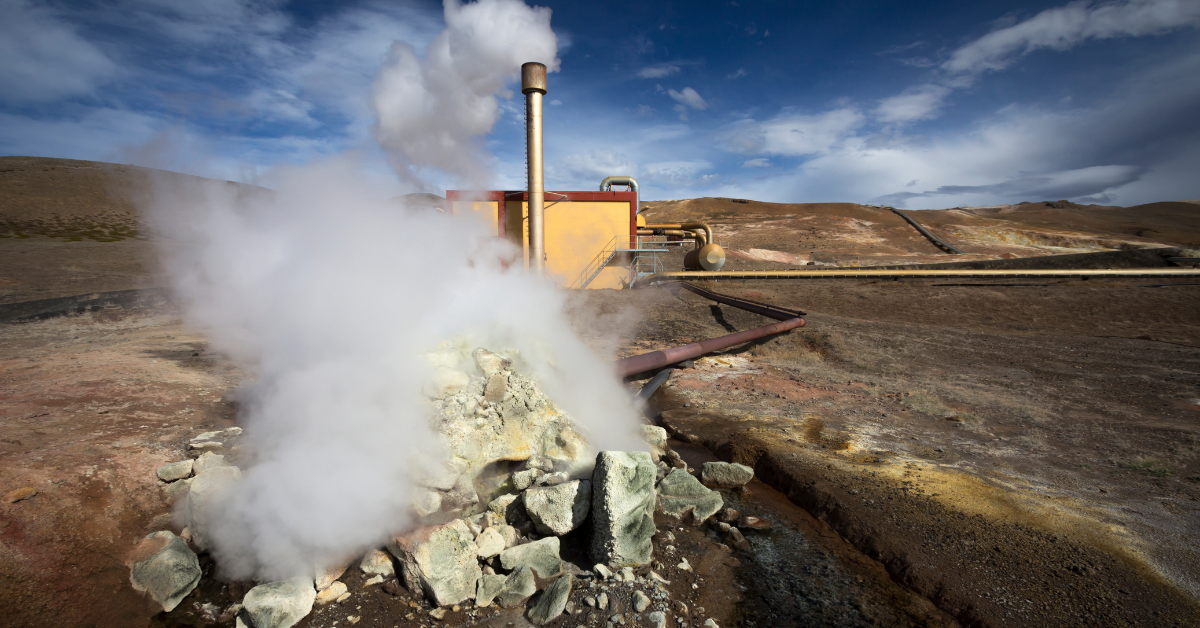
Winning the war on waste
Opinions expressed whether in general or in both on the performance of individual investments and in a wider economic context represent the views of the contributor at the time of preparation.
Executive summary: Every minute, we dump a garbage truck of plastic waste into the ocean. As a result, by 2050 the oceans will contain more plastic by weight than fish. This has a huge impact not only on the economy, but also on human and environmental health. Simply dealing with the amount of rubbish produced daily could cost $375bn p.a. by 2025. Clearing up the existing mess is important, but preventing future waste matters more. Disruption is occurring across the value chain, helped by government legislation. With an absence of pure-plays, our approach is to favour early adopters of innovative materials and/or best-practice waste management.
We produce our own body weight in rubbish every seven weeks. By 2025, the world will be creating over 6m tonnes of rubbish a day, almost double 2010 levels (data per the World Bank). Much of it ends up in the sea. Correspondingly, humankind is polluting water faster than nature can recycle and purify it. Many assert, therefore, that cleaning up the oceans rivals climate change as a global problem. Certainly, among the 50+ thematic pieces we have written over the last 8 years, the facts learned and pictures viewed relating to this topic have been among the most disturbing (type ‘plastic pollution’ into Google Images for examples). Moreover, despite the volume and value of trash having risen substantially in recent years, very little has changed about how we think about the humble rubbish bin or recycling truck. As a result, many see the sector as being ripe for disruption, especially given the historic lack of focus and levels of chronic under-investment.
Nearly everyone, everywhere, every day comes into contact with plastics, especially in the context of food and drink. Plastic has become the universal workhorse material of the modern economy, combining unrivalled functional properties with low cost. Since its introduction in the early 1950s, the production of plastics has outpaced that of almost every other material. The 300m+ metric tonnes of plastic produced annually on a global basis (per Plastics Europe, a trade association), is roughly equivalent to the entire weight of humanity. More shockingly, this figure compares to volumes of 100m in 1989 and 1.5m in 1950. Per capita annual consumption of plastic is equivalent to ~100kg in the US and Europe. While the comparable figure for Asia is ~20kg, this is expected to jump by at least 20% over the next 5 years, driven by urbanisation and industrialisation. To take just one example, 1m plastic bottles are bought around the world every minute (per Euromonitor). Were all the bottles bought last year to be placed end to end, they would extend halfway to the sun.
The biggest problem is that after first use, 95% of packaging material value – equivalent to $80-120bn p.a. – is lost to the economy (per McKinsey). Put another way, more than 40 years after the launch of the first universal recycling symbol, only 14% of plastic packaging is collected for recycling. When additional value losses in sorting and reprocessing are factored in, only 5% of material value is retained for subsequent use. This recycling rate is far below that of other materials such as paper and cardboard (82%), metal (69%) and glass (67%; all figures from the UK Environment Agency). As a result, over 8m tonnes of plastic enters the marine environment every year, equivalent to dumping the contents of one garbage truck into the ocean every minute. If no action is taken, this is expected to increase to 2 per minute by 2050, adding to the estimated 5 trillion pieces of plastic already in the ocean (data respectively from McKinsey and the University of Tasmania).
The threats of such an outcome can be characterised as (at least) threefold: to the economy, human health and the environment. The agriculture, fisheries and tourism industries would be among the worst affected. Meanwhile, the presence of plastic could contaminate both water and food supplies and aggravate natural disasters at the same time as undermining biodiversity and exacerbating pollution. By 2050, the oceans will contain more plastic by weight than fish (per McKinsey). Plastic is a substance the earth cannot digest: a plastic bag is used, on average, for 15 minutes, but takes 300 years to fragment. Plastic bottles may take 450 years to break-down, while Styrofoam containers can endure for up to 1,000 years (per the United Nations). Since plastic can remain in the ocean for hundreds of years in its original form and even longer in small particles, the amount of it in the ocean will clearly accumulate over time.
These microplastics (i.e. tiny sources of plastic that have disintegrated from larger items) are often ingested by marine wildlife, with multiple negative consequences. The number of marine species known to be adversely affected by plastic waste has risen from 260 in 1995 (when the first study was conducted, by the University of Tasmania) to 690 in 2015 and 1,450 in 2018. Damage to the world’s marine ecosystem from plastic is equivalent to at least $13bn annually, while just cleaning plastics from beaches and coastlines costs over $700m a year (per the United Nations). The problem is not just a marine issue, but a human one too. Microplastics are consumed by animals like plankton, passing the problem back up the food chain. People who eat seafood may ingest up to 11,000 tiny pieces of plastic annually, while some studies have found plastic in up to a third of UK-caught fish (data from the Universities of Ghent and Plymouth respectively). Overall, the World Bank estimates that the annual cost of dealing with plastic waste globally could reach $375bn by 2025.
What is being done? There are two broad ways of approaching the problem: clear up existing waste or prevent future waste. Most emphasis is being placed on the latter. While clean-ups are often high visibility/profile in nature, they are only treating symptoms of a much larger problem. One charity (the Ellen MacArthur Foundation) estimates that international clean-ups are not able to deal with more than 1% of plastics currently entering the seas. To provide some context, the ‘Great Pacific Garbage Patch’ is a swirling ocean whirlpool of plastic debris, currently estimated to be twice the size of France. To remove just 1% of its mass would require a year and the use of 67 large ships…
In terms of how to prevent future waste, four major (and not mutually exclusive) approaches are being pursued: changing consumer behaviour, more effective recycling, the introduction of new materials, and increased investor pressure on corporates to improve their business practices/ governance. Regulation can be a key driver. A recent United Nations report highlights that over 60 countries including some emerging nations such as Rwanda and Kenya have now introduced bans or levies on single-use plastics such as carrier bags. These policies do seem to work, with bag usage having fallen by 80% in the UK since the introduction of a charge (per the British Plastics Federation). Elsewhere, the EU has imposed a continent-wide ban of plastic cutlery, plates and straws by 2021 and has separately stated that it wants every piece of packaging to be reusable/ recyclable by 2030. The US and Asia are currently further behind in imposing such legislation.
The corollary of less plastic is the increased use of plastic alternatives. The intersection of several future trends about which we have written previously – nanotechnology, 3D-prinitng and synthetic materials – is making this more feasible, even if development is still at an early stage. Bioplastics (i.e. plastics derived from renewable biomass sources such as vegetable fats and oils or corn starch) are being considered by some as a plastic alternative, although they currently represent just 0.2% of the polymer market, per the United Nations. Other experiments are underway involving the shells of crustaceans, plant-based cellulose, wheat bran, bamboo, milk protein and even chicken feathers as substitutes for plastic. Elsewhere, a range of businesses are trialling the use of compostable (or biodegradable) packaging. Meanwhile, some start-ups are considering schemes to eliminate waste altogether, where all household items could be collected and repurposed, similar to milk bottles.
All four of the above approaches are not without their problems. In summary, they suffer from what economists call ‘the tragedy of the commons’ – crudely, that waste is nearly always conceived of as someone else’s problem. Incentives to clear it up are therefore low. Waste is cross-border in nature and so needs a coordinated international approach with a buy-in from all nations, something which may be difficult to achieve in the current environment. At the least, not only do governments need to commit to plastic phase-outs, but radical changes in consumer behaviour and product design are required (people typically like shiny clear plastic bottles). A recent study in the UK showed that consumers overwhelmingly base their purchase decisions in supermarkets on price and quality, with just 17% stating that packaging material is important (versus 72% who state price matters and 58% quality – per Kantar TNS). Additionally, policy makers need to be aware of unintended consequences: ditching plastic or switching to alternatives may run the risk of worsening other ills such as food spoilage or carbon emissions. Replacing plastic should not be thought of as a blanket solution.
From an investment perspective, there are two key challenges. First, there is a disconnect between the importance of the theme – which we all recognise – and whether investors value it enough to drive a rerating in exposed businesses. Next, given the size/scope of the problem, there are many ways to gain exposure to the theme, or multiple competing solutions. There are no obvious ‘pure-play’ businesses while many innovative start-ups remain private for now.
In the US, there are several listed waste collection businesses (such as Waste Management, Waste Connections and Republic Services Group). All have delivered notable outperformance relative to the market in recent years, although this has been partly driven by high visibility revenue streams and growing cash returns to shareholders. Moreover, as discussed previously, recycling is just part of the solution. In Europe, waste management tends to be more highly regulated than in the US, with most businesses still owned by larger utilities or diversified outsourcing companies. An alternative approach to gaining exposure could be via the manufacturers of products such as plastic alternatives and other innovative packaging solutions. While chemicals businesses such as BASF and DuPont and packing companies such Amcor and DS Smith have taken a lead in this respect, the bulk of their operations tends to be in legacy solutions.
We believe that investors, consumers and politicians will all start to pay increasing attention to the topic of plastic pollution and our approach, therefore, is to focus on early-adopters. Put another way, ESG (environmental, social, governance) and SRI (socially responsible investment) concerns are beginning to matter more. Businesses that have introduced/ are introducing innovative materials and/ or best-practices regarding waste management should be well-placed to benefit. A non-exhaustive list would include: Adidas, Amcor, Carrefour, Coca Cola, Danone, Dunkin’ Donuts, Electrolux, Ikea, Mars, Marks & Spencer, Nestlé, L’Oréal, Pepsi, Procter & Gamble, Starbucks, Unilever and Wal Mart.
Alexander Gunz, Fund Manager, Heptagon Capital
Disclaimers
The document is provided for information purposes only and does not constitute investment advice or any recommendation to buy, or sell or otherwise transact in any investments. The document is not intended to be construed as investment research. The contents of this document are based upon sources of information which Heptagon Capital LLP believes to be reliable. However, except to the extent required by applicable law or regulations, no guarantee, warranty or representation (express or implied) is given as to the accuracy or completeness of this document or its contents and, Heptagon Capital LLP, its affiliate companies and its members, officers, employees, agents and advisors do not accept any liability or responsibility in respect of the information or any views expressed herein. Opinions expressed whether in general or in both on the performance of individual investments and in a wider economic context represent the views of the contributor at the time of preparation. Where this document provides forward-looking statements which are based on relevant reports, current opinions, expectations and projections, actual results could differ materially from those anticipated in such statements. All opinions and estimates included in the document are subject to change without notice and Heptagon Capital LLP is under no obligation to update or revise information contained in the document. Furthermore, Heptagon Capital LLP disclaims any liability for any loss, damage, costs or expenses (including direct, indirect, special and consequential) howsoever arising which any person may suffer or incur as a result of viewing or utilising any information included in this document.
The document is protected by copyright. The use of any trademarks and logos displayed in the document without Heptagon Capital LLP’s prior written consent is strictly prohibited. Information in the document must not be published or redistributed without Heptagon Capital LLP’s prior written consent.
Heptagon Capital LLP, 63 Brook Street, Mayfair, London W1K 4HS
tel +44 20 7070 1800
email [email protected]
Partnership No: OC307355 Registered in England and Wales Authorised & Regulated by the Financial Conduct Authority
Heptagon Capital Limited is licenced to conduct investment services by the Malta Financial Services Authority.



